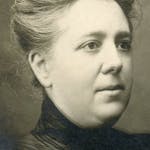Tom Franta's summer vacation itinerary included sites such as Ravensbrueck, Auschwitz-Birkenau and the Wannsee House, in Berlin. Not your typical travel-agent hot spots. Franta, a social studies teacher at Irondale High School in New Brighton, chose to spend his time off immersing himself in human misery. He visited death camps, labor camps, crematoria, gas chambers and the house in Berlin where Nazi bureaucrats cold-bloodedly mapped out plans for Hitler's "final solution" -- the genocide that would claim the lives of 6 million Jews.
Awarded a National Endowment for the Humanities grant, Franta spent five weeks traveling with 27 other educators to some of the places where the Holocaust happened in Poland, Germany and the Czech Republic.
Franta, 42 and a Roman Catholic, said that he learned little about the Holocaust before entering teaching and became interested after he started reading Holocaust survivor stories. His passion comes from the knowledge that mass killings continue to happen around the world and that his students need to know that.
"There have been numerous genocides," he said. "The scale of the Holocaust and the way the Nazis did it, maybe that would never happen again. But it's happening on a smaller scale."
There's an academic application here: Franta intends to use what he's learned to devise and propose a course for the 2009-10 school year at Irondale titled "Holocaust/genocide." Franta already teaches about the Holocaust for about three weeks, at the end of his world history class. That, he thinks, isn't nearly enough.
"Kids say, 'That could never happen today,' then I start talking about Sierra Leone and Darfur. ... It gets the students to really think about that. Maybe I can get the majority of students to think about it, and have empathy. Empathy is the key to avoiding hatred, I believe."
Even if Franta's course doesn't become a reality, Irondale principal Colleen Wambach said his summer experience will enrich what he's already teaching. "Any time we can actually experience some of these things, it adds to the experience we can provide for the kids in instruction," she said.
The Holocaust tour was meant not so much as a research trip as a chance to listen to people -- including Holocaust survivors -- talk about their experiences.
He met a Lithuanian woman to whom a teenage Nazi slipped a pass to be transported from her town with her family. Those 3,500 Jews left behind were herded into the town synagogue, then marched outside and shot. Then there was the story of a Jewish man who befriended a prison guard who had the same name, and was able to get a job caring for the officers' dogs. That job kept him alive.
"All the survivors' stories have a connectedness in them," said Franta, sitting in his Rockford dining room, where he has gathered a dining-table pile of Holocaust books, pamphlets, postcards and DVDs. "Yet each story is unique."
In his class, Franta, who is in his 14th year at Irondale, brings in as guest speakers two Holocaust survivors, Eva Gross and Ella Weiss, both of Plymouth, who somehow survived the horrors of Auschwitz-Birkenau.
"I had some really strong feelings when I was standing at Birkenau, thinking that my speakers were there," Franta said. "That's where the crematoria [where the gassed bodies were burned] were located."
Speakers told him of other things so jarringly ironic that he will never forget them. For instance, prison guards allowed children to take their toys to the shower rooms that turned out to be gas chambers. At Auschwitz-Birkenau, an orchestra played for new arrivals. In Prague, the Nazis were considering preserving the Jewish ghetto as a kind of museum to offer future generations a window into an extinguished people.
Even in the crowded field of Holocaust literature, Franta figures he's got a book in this somewhere. For now, the goal is to teach, and to make sure that teaching takes root.
"Why do I do this?" said Franta. "It's because of the hundreds of thousands who aren't able to do this."
Norman Draper • 612-673-4547





